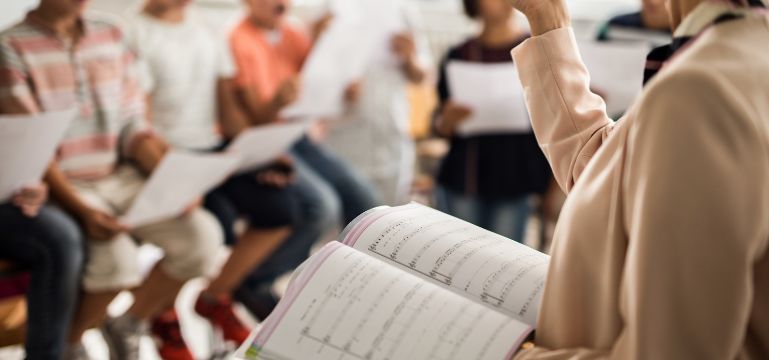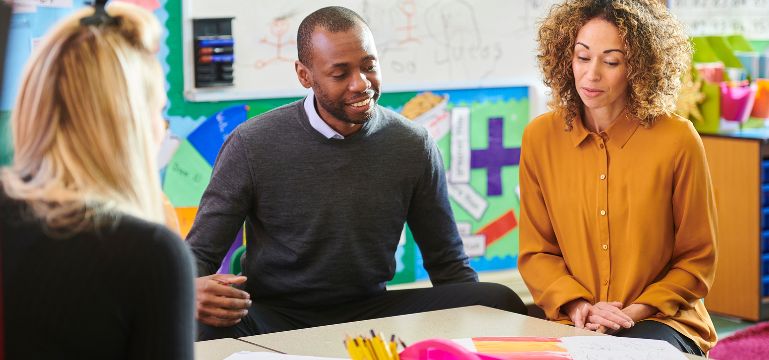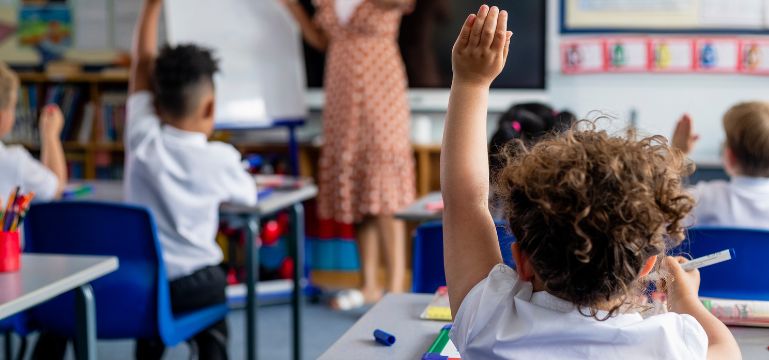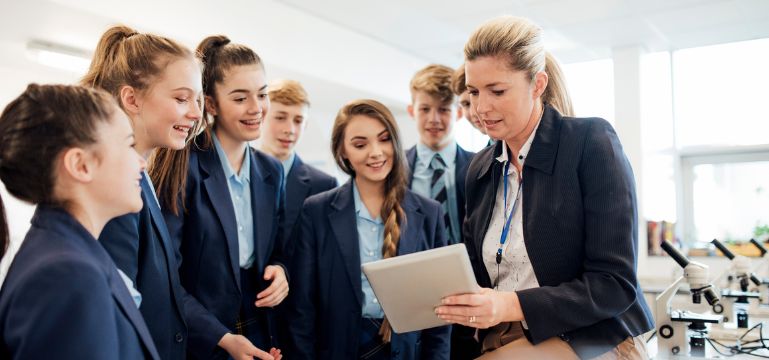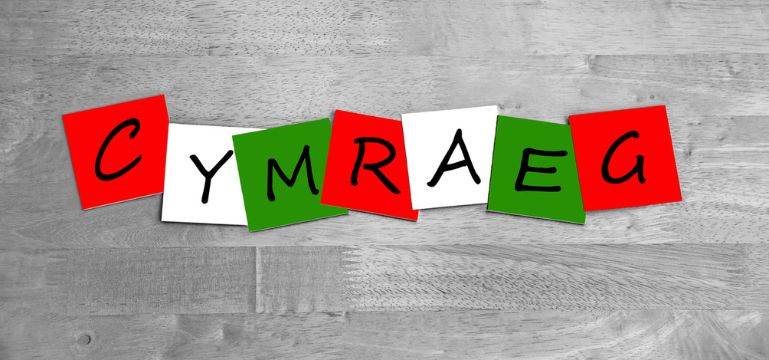Improvement Resource Type: Effective Practice
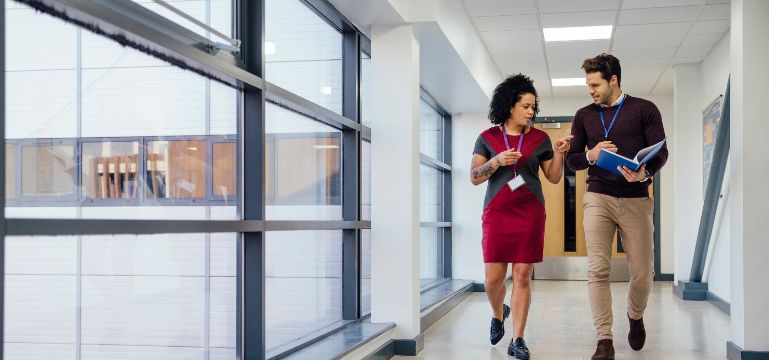
Information about the school
Pontarddulais Comprehensive School opened in 1982, with a Specialist Teaching Facility added in 2007 for up to 10 pupils with profound and multiple learning disabilities. Located in a community with varied socio-economic backgrounds, pupils are drawn from a widely dispersed catchment area including urban areas, small villages and hill farms. There are currently 866 pupils on roll, around 16% are eligible for free school meals and around 20% are identified as having an additional learning need. The school’s vision of ‘Through inclusion, respect and resilience we will become better people and successful lifelong learners.’ supports the school’s motto of ‘Learn to live…live to learn.’
Description of the nature of strategy or activity identified as effective or innovative practice
A distinctive feature of the school improvement cycle is the annual ‘School Improvement Launch’, a collaborative session involving staff, governors, and pupil representatives. This inclusive process ensures diverse perspectives are considered, fostering shared ownership of strategic priorities. This session shapes the School Development Plan (SDP), a dynamic tool guiding the entire school community towards shared goals.
The SDP triggers the planning phase of the school improvement cycle, which includes Area Development Plans (ADPs) that are similar in style and content to the SDP, though they are also designed to serve their context at an area/subject level. In turn, performance management objectives are natural outcomes of the SDP and ADPs. Aligning these processes ensures synergy and collegiate responsibility for school improvement. The SDP is RAG-rated by the Extended Headship Team and regularly scrutinised by governors, ensuring a clear understanding of progress and areas that require additional attention. Members of the Extended Headship Team lead on individual strategies, providing a continuous feedback loop within fortnightly link meetings.
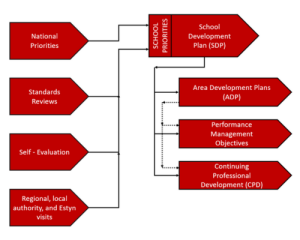
Distributed leadership plays a pivotal role in the school’s success. All TLR holders collaborate to write sections of the SDP. This active participation engages middle leaders in the process and empowers them to guide school improvement. The involvement of middle leaders ensures a more nuanced and contextualised understanding of improvement priorities at an area and departmental level.
Middle leaders utilise the Subject on a Page (SOAP) evaluative tool each term, offering a concise and current overview of the strengths and areas for development, at a subject level. Likewise, the Autumn Standards Review programme enables subject leaders to present pupil outcomes to the Headship Team for discussion. These evaluative sessions include how item-level analysis is used to inform teaching and learning. Future development plans are tightly aligned with the outcomes of these processes, supplemented with a range of other scheduled and well-embedded self-evaluation processes.
External perspectives are embraced through collaborative work with three local secondary schools, providing valuable viewpoints and fostering the sharing of best practices. This engagement provides a valuable external viewpoint and facilitates the sharing of best practice. Additionally, the annual whole-school review, led by middle leaders who are following the school’s Aspiring Senior Leaders’ Programme, identifies strengths and recommendations on specific aspects to inform the following SDP.
Impact on provision and pupils’ Standards
- Drive for continuous improvement: The school’s leaders utilise regular and robust self-evaluation activities purposefully to drive continuous improvement. Rigorous and cyclical self-evaluation processes have become a notable strength, encouraging active involvement from all staff and governors.
- Collective responsibility: The active involvement of staff and governors in shaping improvement priorities and strategies has cultivated a strong sense of collective responsibility. This cohesion is central to the consistently positive impact of leadership.
- Effective use of data: Leaders are confident in their analysis of a broad range of data, using it wisely to identify aspects that require improvement. The triangulation of findings from various evidence sources and the use of pupil and parent views contribute to well-informed decision-making.
- Professional learning opportunities: Collaborative work with local secondary schools and internal whole-school reviews provide valuable professional learning opportunities for staff, especially at the middle leader level. This approach ensures that leadership skills are continually developed and refined.
- Pupils’ standards and outcomes: Pupils’ standards are strong, as are rates of attendance.
Pontarddulais Comprehensive School’s strategic and inclusive approach to school improvement not only contributes to measurable improvements but also enhances leadership capacity. In turn, this develops a sustainable succession strategy and a self-perpetuating model of continuous school improvement.

